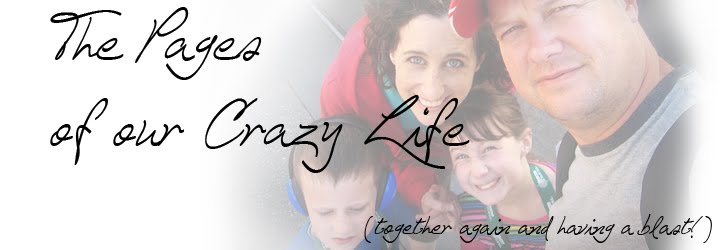So much of my time is spent researching, advocating, and trying out new teaching/learning methods for George. Being sure that his IEP covers certain aids that will help him succeed in the classroom. Finding teachers and therapists willing to work with him one-on-one and getting feedback from them on the methods that work best. By law, educators have to help him be successful and put into place additional supports towards that goal.
But what about my "typical" child. I work with her at home on her homework, and in the classroom during her independent writing period. She's a smart girl. Recently she's begun working with a TAG pull-out program. But she's struggling. Some of it is the stress she puts on herself to achieve, some of it is the distraction of a busy classroom, and some of it is due to a more challenging program. And I feel bad. Because, you see, I went to the principal of her school and mentioned that she was bored with the textbook work. And our principal is a great one. Within a couple of weeks, a teacher was hired part-time to create and teach the pull-out program. And I'm grateful, but worried that I'm pushing my girl too hard.
I know she can do the work, but what wouldn't I give to create an Individualized Education Plan for her? That one-on-one instruction that helps George achieve, well, it sure would help Emma, too. And the extra time he's given when being tested (granted, pre-school testing is minimal), Emma could use it to gather her thoughts better. The headphones and blocked sight lines that help remove George's distractions, my easily distracted girl could REALLY use something like that.
It's a strange conundrum. Those of us with special needs kids work so HARD to be sure that they have every single support that they need. But our neuro-typical kids often need them, too. But because they're neuro-typical, they don't get them. Sometimes the fight for equal education isn't equal at all.
Emma has expressed interest in learning cursive handwriting. So I purchased a workbook, and this summer, we'll spend time working on it together. I'm hoping that over the course of the summer, I'll get a better grasp of her learning style. Because I am her support, her one-on-one, her therapist and teacher.

4 comments:
I just finished writing placement letters for my kids for next year. The boy's was two pages. Lots of requests/examples/concerns. The girls was just a few paragraphs. Basically getting her name in front of the teacher in the hopes that she gets the teacher I want her to have.
I get this post. SO much.
Yes, this is exactly how it is. I often feel that I'm not doing enough to meet my younger son's needs, since I have to focus on my older son so much more. Excellent post.
That is why I'm a big advocate of Universal Design for Learning (UDL) in order to meet the needs of all students (not just the disabled). I also really liked Project Based Learning (PBL) which helps students apply what they learn to creating something which is more relevant to their lives than textbooks. Hope all goes well.
Thanks so much for posting this Meg. I'm writing my first IEP for the munchkin this fall. I know he'll have a plan and we'll help him in his goals. But the one I really worry about at this point is his older brother who is bright and funny and needs a challenge. I guess IEPs would be useful for all kids wouldn't they.
Post a Comment